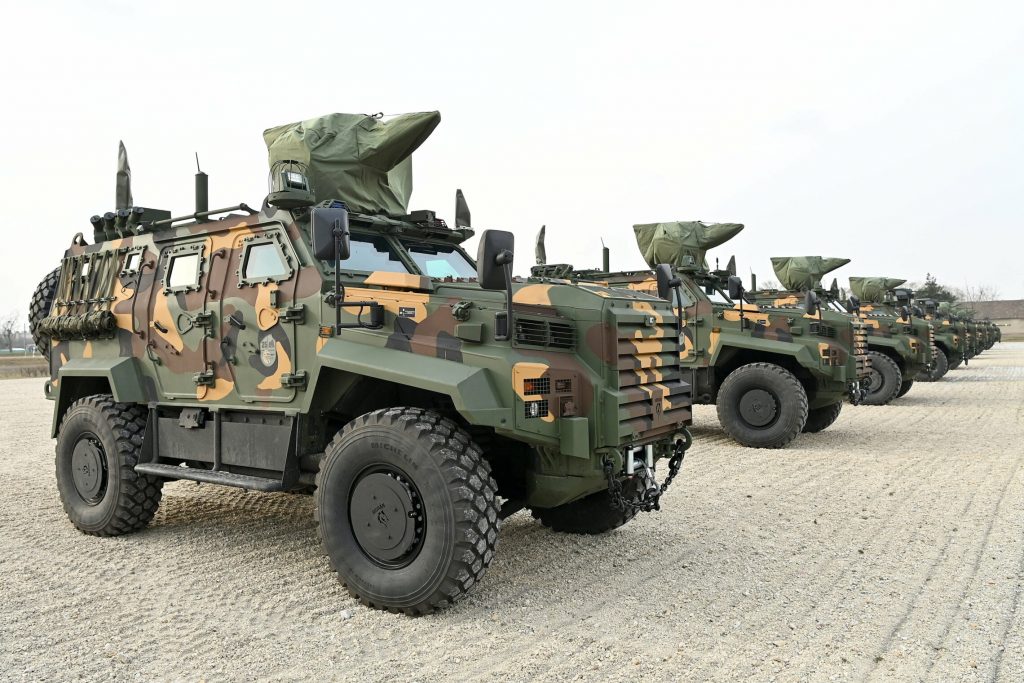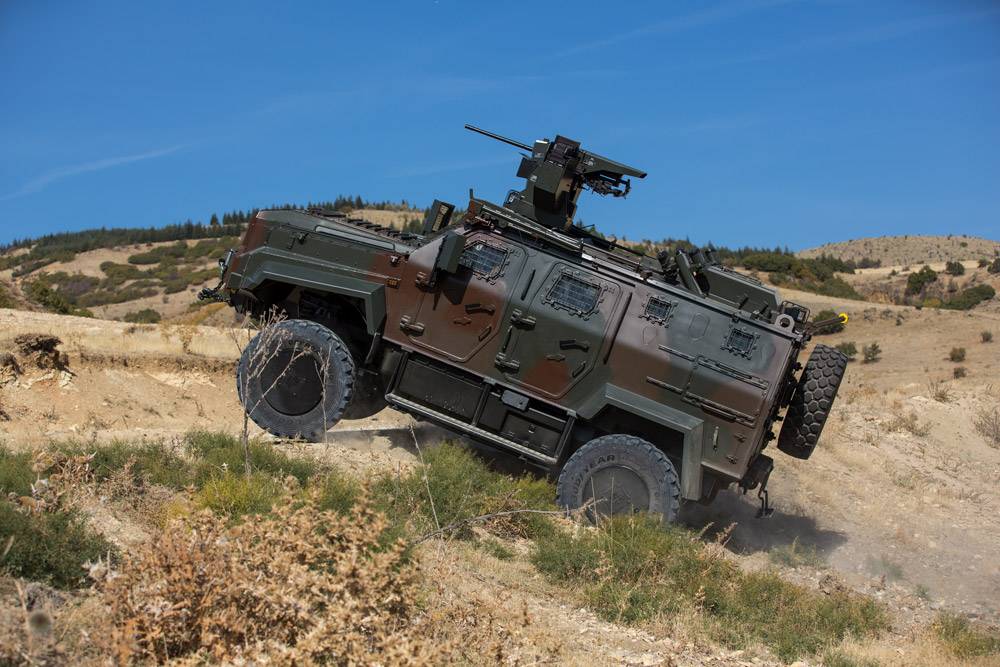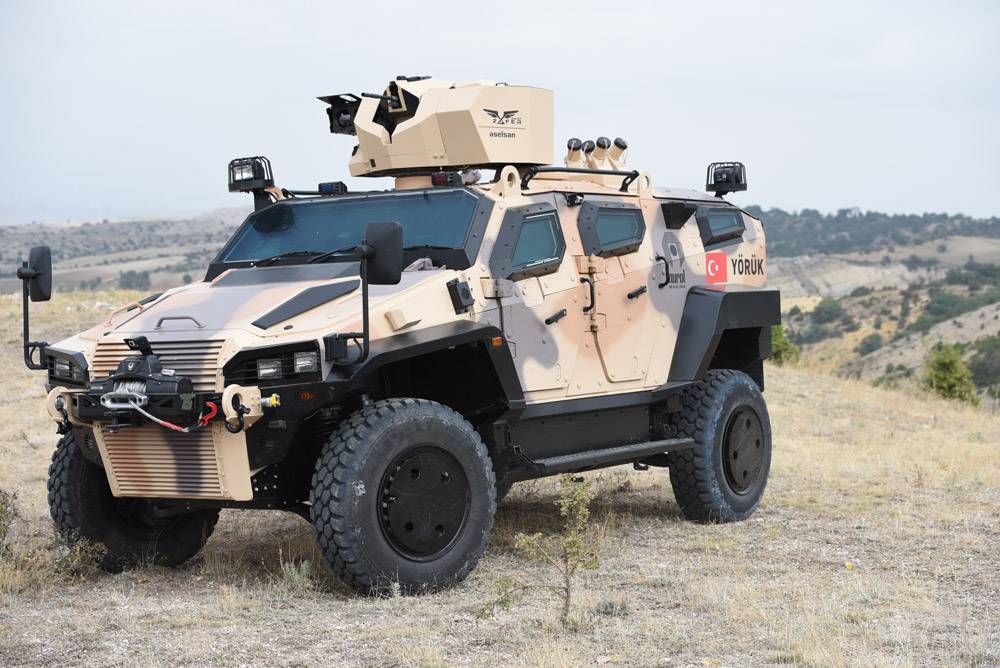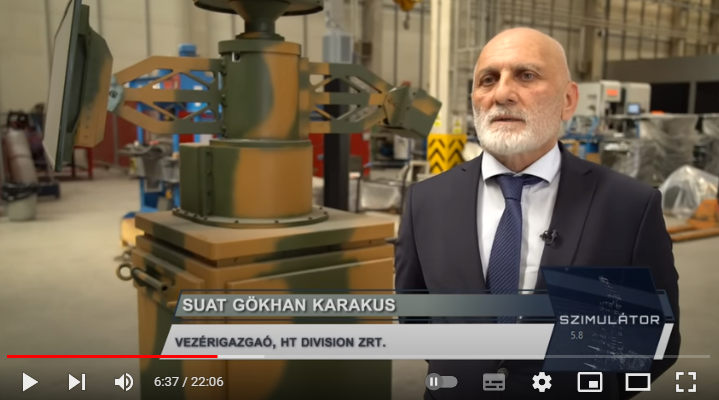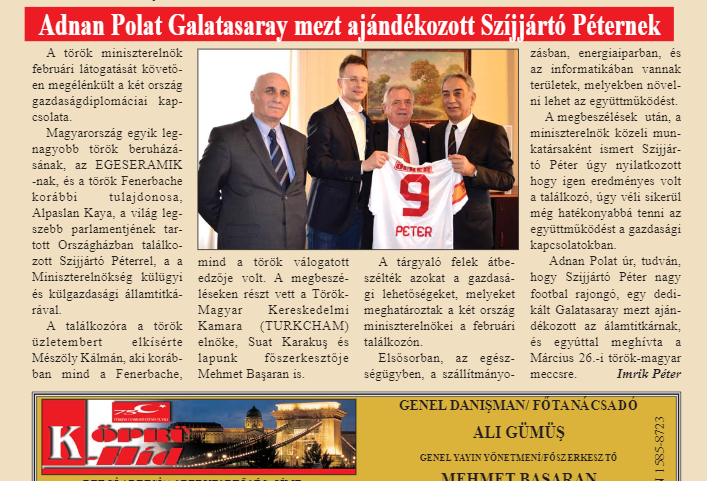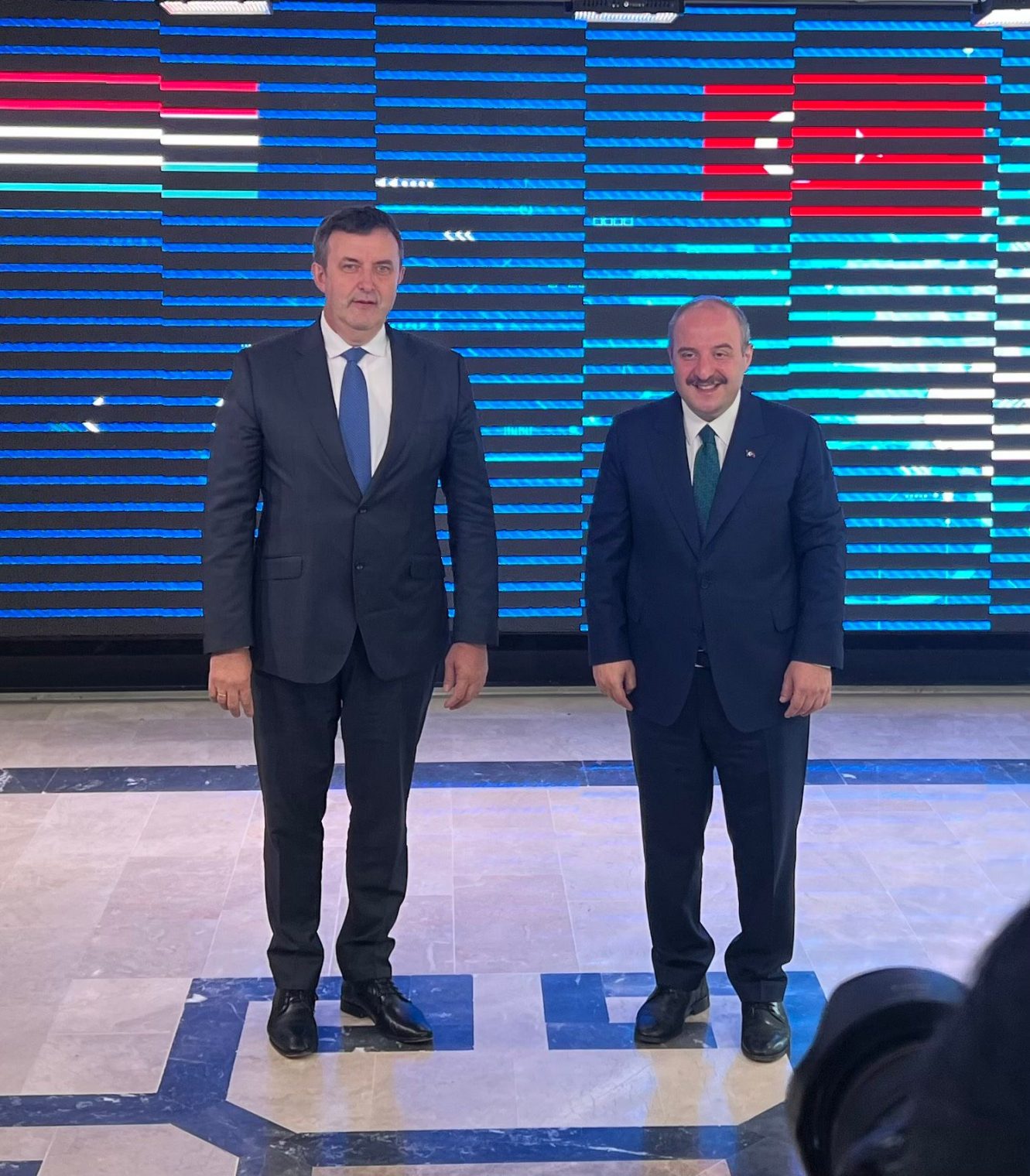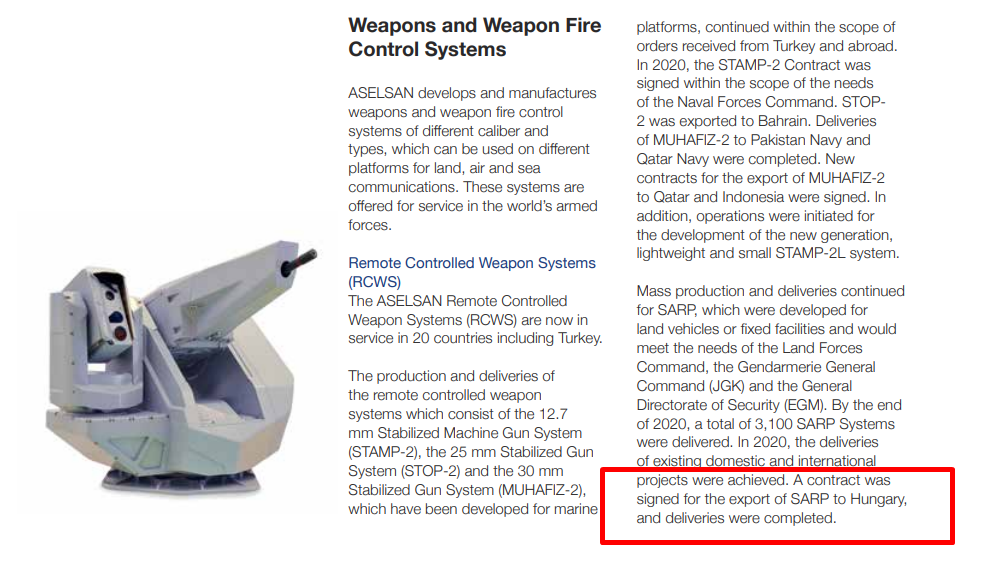The https://english.atlatszo.hu use cookies to track and profile customers such as action tags and pixel tracking on our website to assist our marketing. On our website we use technical, analytical, marketing and preference cookies. These are necessary for our site to work properly and to give us inforamation about how our site is used. See Cookies Policy
Friends of Orbán and Erdogan behind the Turkish purchases of the Hungarian Army
In his 2013 speech in Tusványos, PM Viktor Orbán mentioned Turkey as an example of an illiberal democracy. Since then, Hungary has not only moved closer to Ankara in ideological terms, but trade between the two countries has also increased significantly. More recently, the Turks have also been involved in the development of the Hungarian armed forces: for example, Hungarian Defence Forces bought Turkish armoured vehicles through the intermediary company of Hungarian yachtsman László Szíjj.
The oligarchs associated with Turkish President Recep Tayyip Erdogan have long been present in the Hungarian real estate and solar energy business. They have also recently emerged in the military procurement sector, thus strengthening the close ties between the two illiberal leaders.

The second most important product of Turkish arms export diplomacy, – after the Bayraktar drones produced by Erdogan’s son-in-law’s company – are the two armoured vehicles produced by Nurol Holding, the Ejder Yalcin and the Yörük (NMS 4X4).
So far, they have been installed in Georgia, Chad, Senegal, Malaysia, Tunisia, Qatar, Uzbekistan, Morocco and Niger. These countries, like Hungary, all enjoy good relations with Ankara. Recently, Hungary was the only European country to buy Nurol products for it’s army. The Hungarian government has classified Top Secret the details of the procurement contract for 30 years.
Top Secret for 30 years
In the summer of 2019, the first news appeared in the Turkish press that Hungary was planning to buy Nurol armoured vehicles. However, it was not known at the time exactly how many units and for what price, and some details are still not known.
In June 2020, the Ministry of Defence told the government-aligned Magyar Nemzet daily newspaper that it had “concluded a framework contract with a Turkish company in October 2018 for the procurement of armoured multipurpose modular vehicles”, but neither the price nor the number of units was mentioned. They only said that “the first order was placed in December 2019 and these vehicles are expected to arrive at the end of 2020”.
After the Magyar Nemzet story, Ágnes Vadai, MP for the opposition DK party, asked in a written question about the details of the contracts with the manufacturer Nurol Makina, but the then Minister of Defence Tibor Benkő told her that – like the routes of the military aircraft – this informations are Top Secret for 30 years, for reasons of defence and national security. According to Nordicmonitor, the Turkish and Hungarian states classified all military cooperation between the two countries Top Secret for three decades in 2017.
We had to wait until December 2020 for more details: then the Hungarian Defence Forces announced that they had ordered 10 Ejder Yalcin vehicles, which were named Gidrán after a Hungarian horse. In February 2021, all ten vehicles were delivered to the 25th Klapka György Rifle Brigade barracks in Tata.
Turkish-German-Hungarian coproduction in Kaposvár
In December 2020, then Government Commissioner for Defence Development, Gáspár Maróth (currently State Secretary for Defence Policy and Defence Development), announced that the Hungarian Defence Forces had ordered 40 additional armoured vehicles.
According to the announcement, the vehicles are very similar to the 10 Gidrans purchased earlier, and their acquisition is part of “a programme for the procurement of more than 300 armoured vehicles, the next phase of which will be carried out as part of the Hungarian production and related research and development”.
Now, in the first phase of the programme, “the vehicles will be supplied by the Turkish company that has licensed the Kaposvár production”, and in the second phase, production will start in Hungary, with a gradual transition to the integration of European weapon systems. “The production and research and development related to the programme will continue to be carried out in German-Hungarian cooperation.” – the statement said.
In the spring of 2021, Gáspár Maróth announced that the construction of the Rheinmetall Hungary Zrt. military factory in Kaposvár will begin in the autumn, where “the company, established by the Hungarian state and a German company, plans to produce at least one hundred military vehicles a year as a result of the new investment”. Mr Maróth also said that “production is expected to start in a year’s time and will involve the fitting of combat, radio and electronic equipment to vehicles made in Turkey, with the main components of these vehicles also to be manufactured in Hungary”.
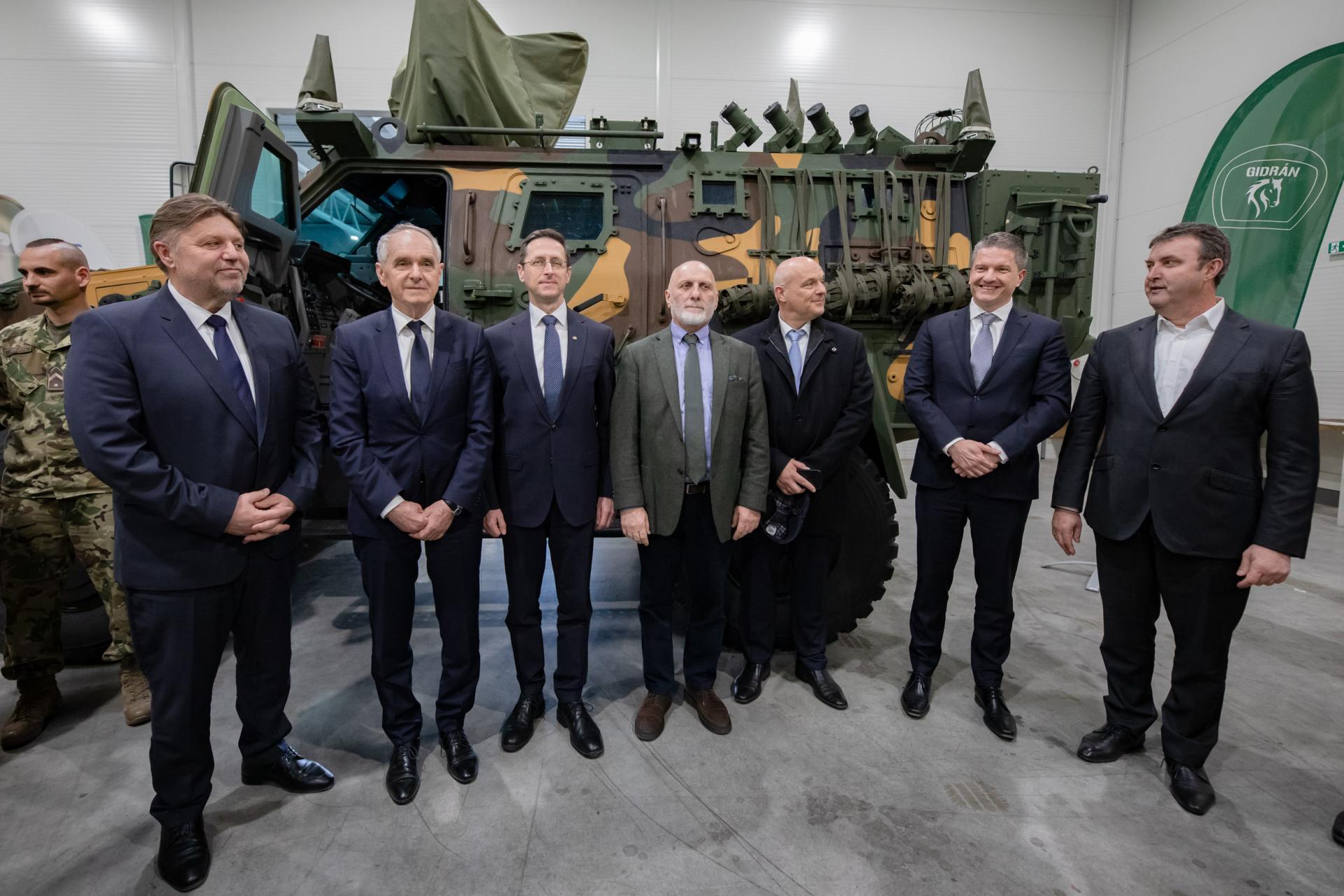
From left to right Attila Gelencsér, Fidesz Member of Parliament, Károly Szita, Mayor of Kaposvár, Mihály Varga, Minister of Finance, 2 unknown persons (presumably representatives of Nurol Makina), Gáspár Maróth, and László Palkovics, Minister of Innovation, in Kaposvár on 20 March 2022, with a Gidran in the background (photo: Ministry of Finance)
In March 2022, they announced that the 40 Gidrán would soon be equipped with combat, radio and electronic equipment. The event was also proudly reported by Nurol Makina on its Facebook page. In April, the first result of the Turkish-Hungarian-German cooperation was presented in the training area of the MH Bakony Combat Training Centre: a 120 mm Rheinmetall Ragnarok mortar mounted on a Gidrán.
Rheinmetall is a German defence giant. In August 2020, the Hungarian government agreed to buy a total of 218 Lynx KF41 combat vehicles for the Hungarian Defence Forces, of which 172 will be built at the factory in Zalaegerszeg. Rheinmetall Hungary Zrt., a joint venture between the Hungarian state-owned ZalaZone Industrial Park Zrt. and Rheinmetall Landsysteme GmbH, has been set up for the production of the vehicles. The Zalaegerszeg factory, built at a cost of around HUF 60 billion, was inaugurated by Prime Minister Viktor Orbán in March this year.
A vehicle costs half a million euros, the intermediary company makes a lot of money
Although neither party has ever said for how much Hungary bought the Turkish vehicles, one specialist portal estimates that, depending on the equipment, a vehicle of Ejder Yalcin, or Gidran, costs at least half a million euros. At the current exchange rate of 420, this means 210 million forints per unit, compared to 175 million forints at 350 exchange rate of last year.
However, apart from the price of the Gidrans, the Defence Forces did not advertise that the vehicles were not purchased directly from Nurol, but – as HVG reported in 2019 – through an intermediary, HT Division Zrt.
The company was founded at the beginning of April 2018, long before the rumours of the armoured vehicles acquisition had started. What is clear, however, is that the company was set up solely for the purpose of buying the Gidrans. Although the company’s website is currently under construction, it was previously available and openly advertised its involvement in the defence procurement.
HT Division Zrt. had zero cash flow in its first two years of operation. However, in 2020, when the first 10 vehicles from Nurol were delivered to the Defence Forces, the company’s balance sheet immediately showed a net imcome of HUF 4.3 billion. If we assume that this is the amount received for the 10 Gidrans, it would mean that the Hungarian Defence Forces paid 430 million forints for a single tank to the intermediary company. This would be more than double the roughly €200 million price per unit estimated by the specialist portal.
From the 4.3 billion HUF in 2020, HT Division made a profit of 479 million HUF, but from 2021’s net income of 1.7 billion HUF, HT Division already made a loss of -271 million HUF. As Gáspár Maróth announced the future purchase of 40 more Turkish vehicles in 2020, the intermediary company will probably receive billions of HUF in additional revenues from the Hungarian Defence Forces.
“HT Division Ltd. was established in 2018. Its activity: import of military equipment. The purpose of its establishment is to operate profitably in the long term, in line with market needs, by making optimal use of existing resources and developing them to the necessary level.” – states the additional annex to the 2021 balance sheet.
The Hungarian oligarch and the Turkish manager
Unsurprisingly, the intermediary company is backed by a number of businessmen, both Hungarian and Turkish, with strong links to their government. Two of the owners of HT Division Zrt. are László Szíjj and Suat Gökhan Karakus, two important players in the pro-Fidesz business circle in Hungary.
Szíjj has gradually worked his way up from Tiszakécske to the political elite, and his construction company Duna Aszfalt has received so many government contracts since 2010 that Szíjj has been able to buy 3 luxury yachts (Artemy, Lady MRD, Seagull MRD). These are often used by Lőrinc Mészáros and his family, and one of them has even been used by Péter Szijjártó, the foreign minister, on holiday with his family.
Minister of Foreign Affairs Péter Szijjártó manages the crisis in Belarus on a luxury yacht in the Adriatic
The Hungarian Minister of Foreign Affairs is spending this summer seemingly feverish, just visit his Facebook page to make sure:…
Suat Karakus is a kind of manager for Adnan Polat, who is a good friend of Prime Minister Viktor Orban. Karakus has held senior positions in several of Polat’s companies, and he was also the managing director of two companies linked to the real estate company of the Hungarian Prime Minister’s son-in-law, István Tiborcz.
As Magyar Narancs weekly newspaper reported in 2016, based on the memoirs of Kálmán Mészöly, it was Mészöly – a hungarian futball coach who worked in Turkey for decades – who introduced Viktor Orbán and Adnan Polat to each other in the days before the 2005 Champions League final in Istanbul. Polat was the president of the famous Turkish football club Galatasaray at the time, and Mészöly said the meeting could have inspired Orbán’s stadium building projects in Hungary.
Polat’s football ties and his good relationship with Fidesz are shown by the fact that in 2013 he donated the Galatasaray’s jersey to Péter Szijjártó, who was not yet foreign minister, but state secretary for foreign affairs.
The owner of the manufacturer is Erdogan’s friend
As Hungary is a member of the European Union and NATO, the Hungarian purchase is very important for Nurol Makina, as the company has only been able to sell its products to African and Asian countries. In those countries, corruption is mostly rampant and extremely high, but the level of democracy is low, so the conditions of the businesses have not really been brought to light.
One abuse is all we know for sure: a French court has ruled that a member of Nurol Holding bribed Libyan officials in a complex case. Libya bought 20 Nurol vehicles of the Ejder Toma type designed for mass dispersal back in 2013.
Nurol Holding is involved in practically everything: construction, real estate development, energy, mining, insurance and tourism, in addition to the defence industry. It even has an airline, Nurol Air. The Holding is owned by the Carmikli family and is headed by Nurettin Carmikli, who is close to Turkish President Recep Tayyip Erdogan.
In Turkey, Nurol has been involved in most of the construction of many motorways or bridges over the last two decades, but they are not only present in Hungary through the Gidrans. The investors of the City Pearl residential complex in Budapest are Adnan Polat, Nurol Holding, and the Özaltin family, an other Turkish oligarch.
“They are like Lőrinc Mészáros and László Szíjjj in Turkey; the two Turkish families have worked in consortium on one of the most important highway projects, the link between Istanbul and Izmir (the 400-kilometre motorway includes a giant bridge over the Bay of the Sea of Marmara)” – Válasz Online independent news website reported.
Palkovics is also into drones
It seems that the vehicles business has gone so well that the parties are continuing to cooperate and additional military equipment may arrive to Hungary from Turkey. Although the Hungarian Defence Forces are still not planning to buy the Bayraktar drones that became world-famous in the Russian-Ukrainian war, other Turkish military products are being considered for purchase in Hungary.
On August 15, 2022, Minister of Technology László Palkovics visited Ankara by the the Defence Forces’ Falcon 607 plane, where he discussed military-industrial cooperation with Turkish Minister of Industry and Technology Mustafa Varank.
According to the official information published on the government website, in addition to the Turkish-Hungarian-German co-production of Gidrans, other purchases were also discussed: “They also discussed how to further develop and expand military-industrial cooperation to include equipment that Turkey is a leader in producing. These include drones, autonomous flying machines or their armaments, and armour. It is planned that a joint venture in Hungary will start manufacturing them in Kaposvár.”
Apparently, this is why Károly Szita, the mayor of Kaposvár also went to Ankara to negotiate. He also visited the Nurol Makina factory, where he tested an armoured vehicle. In his Facebook post about the visit (which shows an NMS 4×4, i.e. Yörük, not the Ejder Yalcin-type vehicle), Szita expressed his hope that the production of Gidrans in Kaposvár would not be hindered by the Russian-Ukrainian war, although the connection is not clear.
Békéscsaba could be the centre for drone production
According to a Turkish news portal, Palkovics had already stated the drone purchase as a fact. What is certain is that the Karayel-SU drones, which are less known than the Bayraktar – but also Turkish-made – have already been tested by the Hungarian Army: in November 2021, the manufacturer Vestel presented the product in Pápa, and the drone was also featured at the Kecskemét Aviation Day under the logo of the HT Division.
As the Defence Forces seems to have bought everything they have tested so far, chances are high that Hungary will indeed buy Karayel-SU drones, but details are not yet known. However, it is also possible that the drone purchase has already taken place, because Gáspár Maróth, the government commissioner responsible for defence procurement, visited Békéscsaba at the end of March 2022, and announced that in the future, drones could be produced in the city through German-Hungarian-Turkish cooperation.
The construction seems to be similar to the Gidrans: we buy a few from the Turkish manufacturer and then produce a larger quantity under licence, in Hungary together with a German company.
Tamás Herczegh, Fidesz MP of Békéscsaba published a Facebook post whith a photo of a drone that looks very much like a Karayel-SU. Of course, this photo could have been taken at another time and place, but it seems to be a strong and clear indication.
According to the Turks, we also bought weapons
In terms of cooperation, it is also worth mentioning Aselsan, a weapons manufacturer owned by the Turkish army. There has also been talk of a possible Hungarian acquisition of this company, but the news is rather confusing.
Aselsan announced on Twitter back in 2020 that a NATO member state would buy remote-controlled weapons systems from them. According to the national security news portal Jane’s, Hungary (will be) the buyer, but the story was soon deleted.
In response to the news, opposition MP Ágnes Vadai submitted a written question to the then Defence Minister Tibor Benkő in early May 2020, asking whether the army had concluded a contract with the company or whether the army had purchased any Aselsan products through an intermediary. The Minister replied that, no such thing had ever happened.
In contrast, the Turkish company wrote in its 2019 annual report that it was working on a contract with Hungary, and in its 2020 report it says that it not only reached an agreement with Hungary, but also delivered the SARP systems to the Hungarian Defence Forces. So the Turks say we bought something from them, but the Hungarian government says we didn’t. The question is who is telling the truth.
What is certain is that the SARP systems produced by Aselsan are compatible with Gidrans, and a Hungarian military blogger recognised two Aselsan products on them already in December 2020, when the first 10 Gidrans arrived, based on official photos: the SARP remote-controlled weapon mount and the SEDA-V acoustic shot detector.
And in June this year, ASELSAN posted on Twitter that at the Eurosatory arms exhibition in Paris, their stand was visited by Hungarian Minister of Technology László Palkovics, who was also presented with some kind of award or commemorative package, according to the photo.
Interestingly, Palkovics in his Paris report does not even mention Aselsan, so for some reason the government is keeping its relationship with the company very secret.
Translated by Gábor Billay. The original, Hungarian version of this story was written by Gábor Billay and Katalin Erdélyi, and can be found here. This article was written in the framework of Transparency International Hungary’s investigative mentoring programme. Company data was provided by Opten Kft. Cover photo: Forty more vehicles will soon arrive in Tata from the Turkish manufacturer (photo by MTI/Tibor Illyés).
Share:
Your support matters. Your donation helps us to uncover the truth.
- PayPal
- Bank transfer
- Patreon
- Benevity
Support our work with a PayPal donation to the Átlátszónet Foundation! Thank you.
Support our work by bank transfer to the account of the Átlátszónet Foundation. Please add in the comments: “Donation”
Beneficiary: Átlátszónet Alapítvány, bank name and address: Raiffeisen Bank, H-1054 Budapest, Akadémia utca 6.
EUR: IBAN HU36 1201 1265 0142 5189 0040 0002
USD: IBAN HU36 1201 1265 0142 5189 0050 0009
HUF: IBAN HU78 1201 1265 0142 5189 0030 0005
SWIFT: UBRTHUHB
Be a follower on Patreon
Support us on Benevity!

